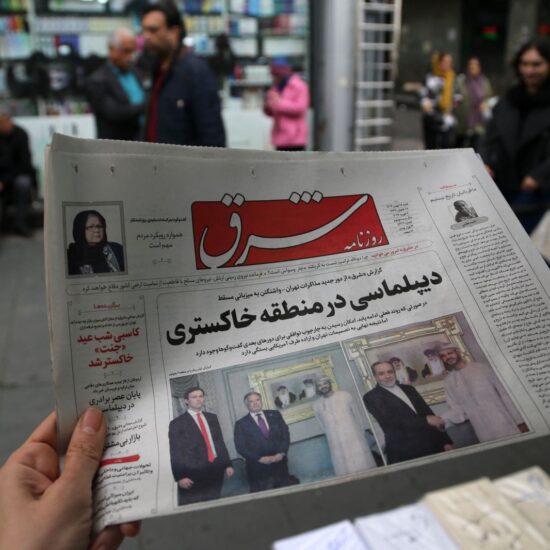
The rise of academic fraud in Lebanon: methods, reasons, and long-term impacts on students’ future careers
Academic fraud in Lebanon is done through various unethical practices, including plagiarism and impersonation. This issue is exacerbated by the widespread availability of services that facilitate these dishonest activities and the poor regulation at some universities.
Another prevalent form of academic fraud in Lebanon involves contract cheating, where students hire third parties to complete their assignments, research papers, or even theses.
“Online platforms and dedicated services offer these options, allowing students to purchase custom-made academic work. These services are not only accessible but also well-organized, with some platforms charging significant amounts for high-quality, customized papers,” Jad Hani, an assistant lecturer at Modern University for Business and Science (MUBS) told NOW.
This academic dishonesty is driven by various factors, including the high pressure on students to perform academically, the lack of strict monitoring and enforcement of academic integrity policies, and the perceived low risk of getting caught.
These factors contribute to a culture where cheating is normalized, and students may not fully grasp the long-term consequences of their actions, according to Hani.
Addressing this issue requires comprehensive strategies that involve strict enforcement of academic integrity policies, increasing awareness among students about the consequences of academic fraud, and fostering an environment that values ethical academic practices.
“Educational institutions in Lebanon need to implement clear measures to detect and prevent cheating, such as using plagiarism detection software and promoting a culture of academic honesty through education and policy enforcement, because it is not fair on the students who work hard for their grades compared to the students who pay people to do all the hard work on their behalf, yet they still graduate and gain certificates,” third-year Bachelor student studying Biology at Balamand University told NOW.
The absence of stringent monitoring and enforcement of academic integrity policies has allowed foreign students to commit academic fraud at various Lebanese universities, enabling them to return to their home countries with illegitimate certificates in hand.
The issue of Iraqi students purchasing fake degrees from Lebanese universities has garnered significant attention, highlighting a serious problem within the higher education systems of both countries. This scandal involves thousands of Iraqi students obtaining fake Master’s and Ph.D. degrees from certain Lebanese universities without attending classes, facilitated by networks of brokers.
The scandal first came to light when the Iraqi Ministry of Education noticed an unusual number of students presenting degrees from Lebanese institutions. Upon investigation, it was revealed that around 27,000 forged certificates had been issued.
“This problem is not just about the sale of fake certificates but also about the broader corruption in the education sector,” Sanaa Abou Mjahed, an educational psychologist told NOW.
Despite the gravity of the issue, efforts to address it have been slow and largely ineffective. While the Lebanese Minister of Education has formed committees to investigate and promised accountability, no significant legal actions have been taken against those involved, according to Sanaa.
This ongoing impunity continues to undermine the credibility of Lebanese higher education and poses a severe threat to the integrity of academic qualifications in both countries.
A confession of academic fraud
Ali, a student in Business and Administration who wished to keep his surname unknown along with his university’s name, had spoken to NOW about his experience in using academic fraud methods as they were behind his academic success and the reason he secured high marks.
“The competitive environment and high expectations placed immense pressure on me to perform well academically, especially that my family was paying a large sum of money on me. I struggled to balance my coursework with personal challenges that I had going on in my life,” Ali explained to NOW.
To keep up with his peers, Ali first began copying assignments from online sources and making modifications with his personal touch before submitting them as his own. When this proved successful, he escalated his efforts and began paying others to complete his projects.
“I paid freelancers and companies that specialize in academic writing to complete my essays and reports. These services are easily accessible on Facebook and on the internet and offer professionally written papers that are difficult for professors to detect as fraudulent,” Ali explained to NOW.
Ali says that the immediate rewards, high grades, praise from his lecturers and family and the promise of a good career are what kept him going to justify his actions.
Nonetheless, he does admit that the consequences of his actions have weighed heavily on him despite the excellent grades he has earned, he feels unprepared and insecure about the knowledge and skills needed in Business and Administration.
The long-term impact from an educational psychologist perspective
Academic fraud, while often seen as a short-term solution to immediate academic pressures, can have profound and far-reaching consequences on students’ futures. The repercussions extend beyond the classroom, affecting professional integrity and long-term career success.
For Sanaa Abou Mjahed, the most immediate consequence of academic fraud is the gap in knowledge and skills as this group of students will be ill-prepared for the professional challenges they might face in their careers.
“Additionally, those who engage in academic dishonesty may find it easier to justify unethical behavior in their professional lives, leading to actions that can harm their careers and reputations,” she told NOW.
According to the educational psychologist, cheating may help achieve short-term academic goals, but it often impedes long-term career progression along with personal problems due to the constant fear of being exposed which can cause stress and anxiety, affecting mental health and overall well-being.
Rodayna Raydan is a Lebanese-British journalist. You can follow her on Twitter @Rodayna_462
The views in this story reflect those of the author alone and do not necessarily reflect the beliefs of NOW.








